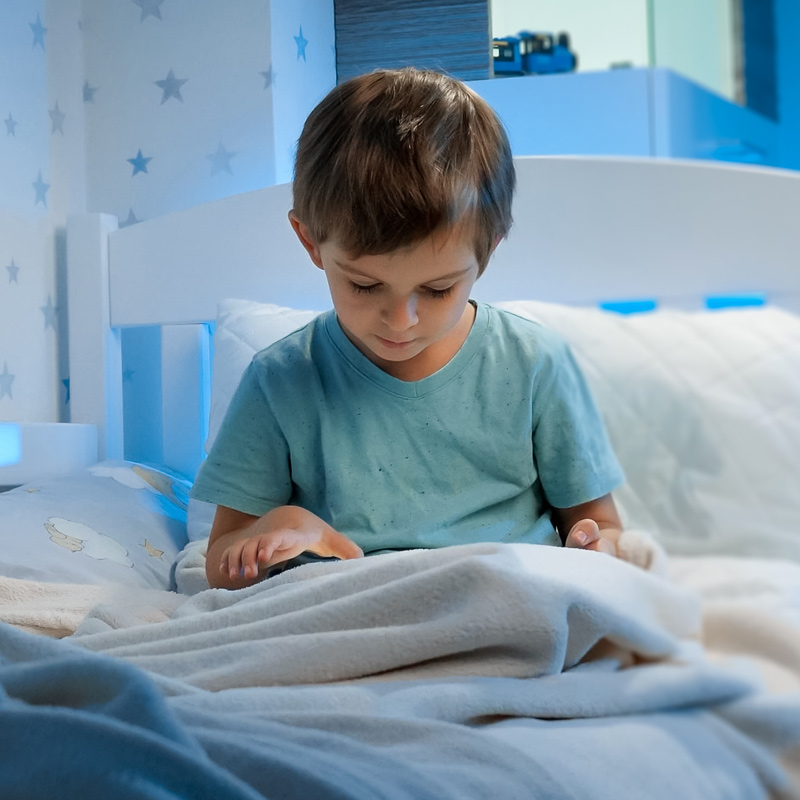As electronic devices become more prevalent within the daily routines of children and teens, it has become increasingly important to recognize the effects that blue light may have on their sleep.
Healthy sleep is critical for growing adolescents. Sleep supports memory retention and retrieval, learning abilities and brain development. With schools currently out of session, children and teens may be using their electronic devices much more than before. It is especially important to limit use before bedtime to prevent disruptions in quality of sleep.
Young children are recommended between 9-10 hours of sleep per night and teens 8-10 hours. During these hours, waste products that have accumulated in the brain during the day are removed. Sleep also helps to consolidate memory. Memory consolidation reinforces long-term information in the brain for effective learning and information retrieval. The brain also releases hormones, which are necessary for growth and development.
When children and teens do not get a quality night’s rest, they may endure a variety of short- and long-term effects. These include:
- Increased irritability, anger, frustration
- Inability to focus or pay attention
- Difficulties with decision making
- Higher blood pressure
- Anxiety
- Depression
Blue Light’s Impact
Children and teens spend hours of their day on electronic devices, resulting in reduced sleep quality. When blue light emits from screens, melatonin—the hormone responsible for helping the body fall asleep—is inhibited, and this can result in delayed sleep-onset.
Not only does melatonin affect bedtimes, but electronic usage can stimulate the brain into staying awake for longer periods of time. As adolescents scroll through social media or play video games, they may become excited or anxious depending on the content. This high level of brain activity combined with inhibited melatonin production can delay a child’s sleep hours.
Tips for Easing into Bedtime
Parents can help their young children by keeping them on a consistent sleep schedule and working with teenagers to create their own healthy sleep habits that accommodate extracurricular activities. Even though enforcing a consistent bedtime can be difficult in all age groups, it’s important to keep children on a regular sleep schedule. Some tips for easing into bedtime include:
- Set-up routines and boundaries for young children to deter unhealthy habits
- Do not give in to excuses to get out of bed after bedtime. Keep them calm, but preserve the bedtime routine
- Switch blue-light settings to warmer tones on electronic devices
- Avoid using electronic devices at least one hour before bedtime
- Keep electronics outside of the bedroom and password protected
- Make sleep a family priority, emphasizing that if the whole family gets enough rest, everyone will feel better and behave better.
The Stramski Children’s Developmental Center at MemorialCare Miller Children’s & Women’s Hospital Long Beach provides comprehensive care for children—from birth to age 21—for behavioral and developmental conditions, including sleep conditions. Miller Children’s & Women’s offers pediatric sleep specialists, sleep studies and a family centered environment where the care team partners with families to identify and manage sleep disorders.
If you have any concerns about your child’s sleep behavior or health, it’s important to contact your pediatrician and share your concerns about sleep deprivation. Your child may benefit from a sleep clinic consultation or sleep study. Learn more.
Learn more about the author, Dr. Gary Feldman.

